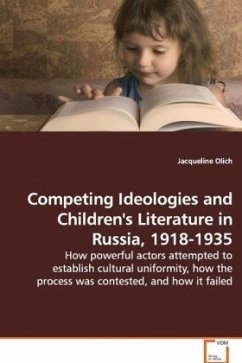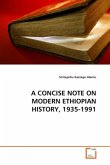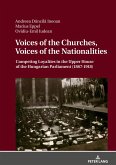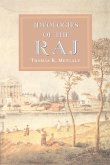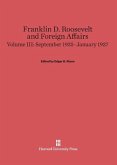After the October Revolution of 1917, the impetus to
control
authorship, the potential of children''s literature as
a creative medium,
and the desire to communicate their visions to
child-readers and their
parents drew many ideologues to children''s
literature. Political figures,
pedagogues, bureaucrats, authors, and illustrators
entered into a
public debate about what form a Soviet children''s
literature should
assume. This interdisciplinary study integrates
original Russian
archival research, scholarship in Russian cultural
and social history,
and theoretical studies of children''s literature to
show how the process
of creating children''s literature in Soviet Russia
was a contested one.
Adults entered into a symbolic discussion about the
meaning of their
past, present, and future by authoring and contesting
children''s
literature.
control
authorship, the potential of children''s literature as
a creative medium,
and the desire to communicate their visions to
child-readers and their
parents drew many ideologues to children''s
literature. Political figures,
pedagogues, bureaucrats, authors, and illustrators
entered into a
public debate about what form a Soviet children''s
literature should
assume. This interdisciplinary study integrates
original Russian
archival research, scholarship in Russian cultural
and social history,
and theoretical studies of children''s literature to
show how the process
of creating children''s literature in Soviet Russia
was a contested one.
Adults entered into a symbolic discussion about the
meaning of their
past, present, and future by authoring and contesting
children''s
literature.

